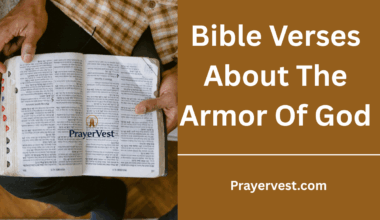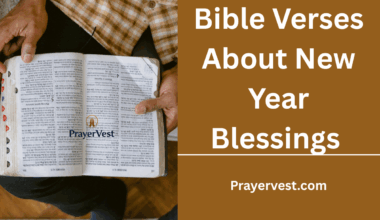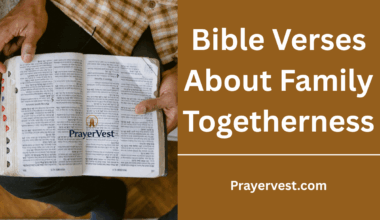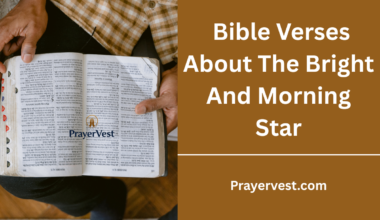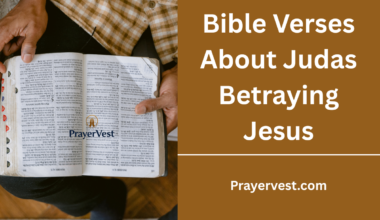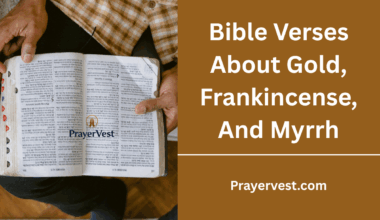One of God’s greatest gifts to humans is free will, a divine invitation to make decisions, show love, and lead meaningful lives. We can see from the first pages of Scripture that God created us as souls capable of a sincere connection with Him rather than as mechanical beings constrained by programming. Adam and Eve were granted freedom in Eden, including the ability to trust or doubt, obey or revolt.
The human story is shaped by this same freedom, which reverberates throughout time and shapes moral decision-making and spiritual accountability. God’s profound regard for human dignity is demonstrated by free will; He prefers unconditional love above forced compliance.
Free will is both a privilege and a curse throughout the Bible. It gives us the ability to either follow or deviate from God’s will. The conflict between divine power and human choice is discussed by the prophets, psalmists, and apostles; it is a riddle that inspires both awe and humility.
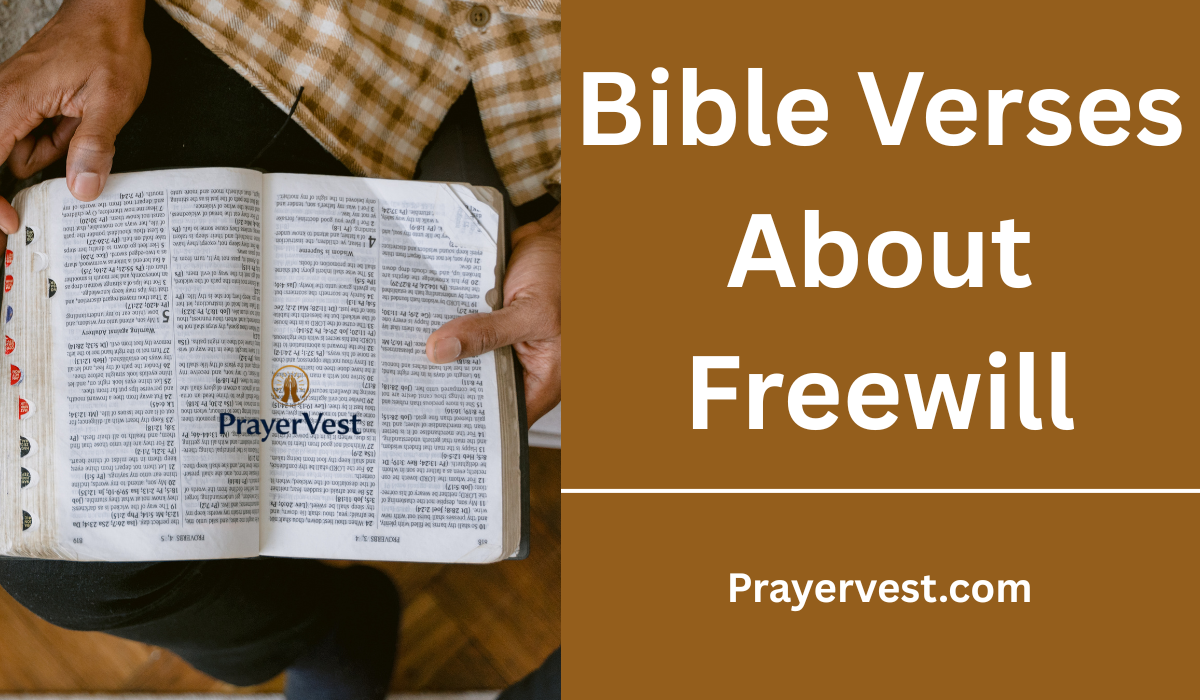

God’s invitations and instructions are not meaningless; they assume that we will be able to answer. Whether we choose to sin, serve, forgive, or believe, every choice we make reflects the freedom God has given us. Our decisions have an enduring impact on the world around us as well as our own fate.
In the end, the lesson of Scripture teaches that choosing what pleases God is the path to true freedom rather than behaving as we please. When free will is given over to divine wisdom, it becomes the means of achieving happiness, fulfillment, and life. The verses that follow shed light on this holy harmony between heavenly direction and human choice. They serve as a reminder that although God offers us both blessings and curses, life and death, He also exhorts us to choose life—a life based on love, faith, and obedience to His Word.
40 Inspiring Bible Verses About FreeWill (2026)
1. Deuteronomy 30:19
“This day I call the heavens and the earth as witnesses against you that I have set before you life and death, blessings and curses. Now choose life, so that you and your children may live.”
This verse captures the essence of freewill—God presents humanity with options but never forces a decision. The Creator invites His people to choose life, love, and obedience, yet the responsibility of that choice remains ours. Here, freewill is not a curse but a sacred privilege, allowing us to participate in God’s moral order. Every decision we make becomes a testimony of our alignment with either divine life or spiritual decay.
2. Joshua 24:15
“But if serving the Lord seems undesirable to you, then choose for yourselves this day whom you will serve… But as for me and my household, we will serve the Lord.”
Joshua’s challenge to Israel underscores personal responsibility in spiritual devotion. Even as a leader, Joshua recognizes that true faith cannot be coerced—it must be chosen. His declaration stands as a timeless statement of conviction: devotion to God is a deliberate act of will. In this, we see that freewill is the soul’s declaration of allegiance, shaping both families and generations.
3. Galatians 5:13
“You, my brothers and sisters, were called to be free. But do not use your freedom to indulge the flesh; rather, serve one another humbly in love.”
Paul reframes the concept of freedom—not as reckless autonomy but as the liberty to love. Freewill becomes meaningful only when it leads to service and compassion. Christian freedom does not abolish moral responsibility; it amplifies it. This verse reminds us that the highest expression of free will is not rebellion but redemptive love.
4. Revelation 3:20
“Here I am! I stand at the door and knock. If anyone hears my voice and opens the door, I will come in and eat with that person, and they with me.”
Christ’s invitation illustrates divine respect for human choice. He does not break down the door of the heart; He knocks and waits. The act of opening symbolizes our free response to grace. This verse beautifully portrays the intersection of divine sovereignty and human freedom—God initiates, but man must respond.
5. Proverbs 16:9
“In their hearts humans plan their course, but the Lord establishes their steps.”
Here, the balance between human intention and divine orchestration is revealed. God allows us to plan, dream, and decide, yet He lovingly directs our paths toward His purposes. Freewill is not abolished by God’s sovereignty; it is refined within it. Our choices matter, but God ensures that the outcomes align with His eternal design.
6. Romans 14:12
“So then, each of us will give an account of ourselves to God.”
Accountability is the natural companion of freewill. Every decision we make will ultimately face divine evaluation. Paul reminds believers that personal freedom comes with moral weight—the liberty to choose also means the duty to answer. Freewill, therefore, is both a gift and a test of integrity before the righteous Judge.
7. John 7:17
“Anyone who chooses to do the will of God will find out whether my teaching comes from God or whether I speak on my own.”
Jesus emphasizes the role of choice in discerning truth. Understanding divine revelation is not merely an intellectual act but a moral decision to obey. When one wills to do God’s will, light is granted. Freewill becomes the key that unlocks spiritual insight—obedience opens the heart to divine wisdom.
8. 2 Corinthians 9:7
“Each of you should give what you have decided in your heart to give, not reluctantly or under compulsion, for God loves a cheerful giver.”
Generosity rooted in freewill is more valuable than obedience under pressure. God delights in acts that spring from love, not obligation. True giving mirrors God’s own character—voluntary, joyful, and compassionate. This verse reminds us that freewill is not only about moral choices but about the spirit behind our actions.
9. Isaiah 1:19
“If you are willing and obedient, you will eat the good things of the land.”
The conditional blessing here shows that God’s favor responds to human willingness. He does not impose blessings but invites participation through choice. Freewill and obedience work hand in hand—our willingness to align with divine will opens the door to abundance, peace, and restoration.
10. John 3:19
“This is the verdict: Light has come into the world, but people loved darkness instead of light because their deeds were evil.”
Here, freewill reveals its moral consequences. Humanity is presented with the light of Christ, yet some reject it—not by ignorance, but by choice. The verse uncovers the tragic misuse of freewill—when love of sin eclipses love of truth. Still, it affirms that even rejection is a choice, underscoring the sacred power God entrusts to human agency.
11. Matthew 11:28-30
“Come to me, all you who are weary and burdened, and I will give you rest. Take my yoke upon you and learn from me, for I am gentle and humble in heart, and you will find rest for your souls. For my yoke is easy and my burden is light.”
Jesus’ invitation demonstrates that embracing Him is an act of free will. No one is coerced into discipleship; we are invited to choose relief and guidance in our own volition. This passage teaches that true peace comes when we willingly submit to divine instruction, rather than being forced. Freewill enables authentic relationships, allowing us to receive grace as a conscious decision.
12. Ezekiel 18:30
“Therefore, you Israelites, I will judge each of you according to your own ways, declares the Sovereign Lord. Repent! Turn away from all your offenses; then sin will not be your downfall.”
God reminds His people that their destiny depends on personal choice. Freewill carries accountability: turning from sin and embracing righteousness is a voluntary act. The verse emphasizes that divine judgment honors human freedom—God’s guidance invites repentance, but the response lies within our hands.
13. James 1:5-6
“If any of you lacks wisdom, you should ask God, who gives generously to all without finding fault, and it will be given to you. But when you ask, you must believe and not doubt, because the one who doubts is like a wave of the sea, blown and tossed by the wind.”
Seeking wisdom is a choice, and the quality of our petition reflects the exercise of freewill. God offers understanding generously, but the act of asking—and the decision to trust fully—rests with us. Freewill, here, is linked with faith and diligence, showing that divine gifts often require our conscious participation.
14. Proverbs 3:5-6
“Trust in the Lord with all your heart and lean not on your own understanding; in all your ways submit to him, and he will make your paths straight.”
This verse illustrates the interplay between freewill and trust. Choosing to rely on God, rather than our limited understanding, is an exercise of volition. Freewill becomes the mechanism through which obedience and faith transform our life’s direction. Submission is voluntary, making the blessings of guidance all the more profound.
15. Deuteronomy 11:26-28
“See, I am setting before you today a blessing and a curse—the blessing if you obey the commands of the Lord your God that I am giving you today; the curse if you disobey them.”
Here, God explicitly frames choice as central to human experience. Freewill is not abstract; it carries tangible outcomes—blessings for obedience, consequences for rebellion. This verse shows that God respects our capacity to decide, teaching us responsibility, discernment, and moral engagement.
16. 1 Corinthians 10:13
“No temptation has overtaken you except what is common to mankind. And God is faithful; he will not let you be tempted beyond what you can bear. But when you are tempted, he will also provide a way out so that you can endure it.”
The provision of a way out highlights that navigating temptation requires conscious choice. Freewill enables us to accept God’s escape route or succumb to sin. This verse teaches that God’s faithfulness supports our decisions, but the moral agency to act rightly remains ours.
17. Psalm 119:30
“I have chosen the way of faithfulness; I have set my heart on your laws.”
The psalmist celebrates the deliberate decision to follow God’s ways. Freewill is the foundation of spiritual devotion—faith is meaningful because it is chosen, not imposed. This verse reminds us that personal commitment, rooted in choice, strengthens our character and aligns us with God’s purpose.
18. Romans 6:16-18
“Don’t you know that when you offer yourselves to someone as obedient slaves, you are slaves of the one you obey—whether you are slaves to sin, which leads to death, or to obedience, which leads to righteousness? But thanks be to God that, though you used to be slaves to sin, you have come to obey from your heart the pattern of teaching that has now claimed your allegiance.”
This passage underscores that freewill is always in play, even in submission. Choosing whom we serve—sin or righteousness—is a conscious decision. True freedom is found in voluntary obedience, where freewill allows us to embrace God’s transformative authority rather than being coerced.
19. John 1:12
“Yet to all who did receive him, to those who believed in his name, he gave the right to become children of God.”
Belief and reception are voluntary acts of free will. God’s offer of sonship is universal, yet its acceptance requires a deliberate choice. Freewill becomes the conduit through which grace enters our lives, illustrating that divine blessings are powerful but only effective when consciously embraced.
20. Matthew 7:13-14
“Enter through the narrow gate. For wide is the gate and broad is the road that leads to destruction, and many enter through it. But small is the gate and narrow the road that leads to life, and only a few find it.”
The contrast between paths highlights moral choice. Freewill determines the spiritual trajectory of our lives. God presents both options clearly, yet the journey to life or destruction depends on our decision to pursue the narrow path. The verse emphasizes that freewill is both a privilege and a profound responsibility.
21. James 4:7-8
“Submit yourselves, then, to God. Resist the devil, and he will flee from you. Come near to God and he will come near to you.”
Freewill is the tool through which we approach God or resist evil. Submission is voluntary, and choosing to draw near to God invites His presence. This verse reminds us that spiritual victory requires conscious decisions—resisting temptation and pursuing closeness with God is a matter of deliberate will.
22. 1 Peter 2:16
“Live as free people, but do not use your freedom as a cover-up for evil; live as God’s slaves.”
Peter balances liberty with responsibility. True freedom is not autonomy for indulgence but the capacity to choose righteousness. Freewill allows us to decide how we live, emphasizing that moral restraint and accountability transform liberty into spiritual maturity.
23. Deuteronomy 15:10
“Give generously to them and do so without a grudging heart; then because of this the Lord your God will bless you in all your work and in everything you put your hand to.”
Giving freely illustrates the exercise of freewill in practical ways. God honors voluntary generosity over coerced action, showing that blessing flows from intentional, joyful choices. Our moral and spiritual growth is amplified when our acts stem from conscious decisions rather than obligation.
24. Proverbs 19:21
“Many are the plans in a person’s heart, but it is the Lord’s purpose that prevails.”
This verse underscores the interaction of free will and divine guidance. While humans plan, God ultimately directs outcomes. Freewill is respected, but God shapes our choices into His purposes. Our role is to make decisions faithfully, trusting that God can transform them for His glory.
25. Galatians 6:7-8
“Do not be deceived: God cannot be mocked. A man reaps what he sows. Whoever sows to please their flesh, from the flesh will reap destruction; whoever sows to please the Spirit, from the Spirit will reap eternal life.”
Choices carry consequences. Free will allows us to determine the spiritual and moral trajectory of our lives. Sowing to the Spirit versus the flesh demonstrates that our decisions are pivotal; God respects our autonomy while the results naturally follow our volitional acts.
26. Isaiah 55:6-7
“Seek the Lord while he may be found; call on him while he is near. Let the wicked forsake their ways and the unrighteous their thoughts. Let them turn to the Lord, and he will have mercy on them, and to our God, for he will freely pardon.”
The invitation to repent and seek God highlights the essential role of freewill. Forgiveness and mercy are offered, but acceptance is a choice. Human willingness determines the reception of divine grace, illustrating that God honors voluntary response over compelled compliance.
27. Romans 12:2
“Do not conform to the pattern of this world, but be transformed by the renewing of your mind. Then you will be able to test and approve what God’s will is—his good, pleasing and perfect will.”
Transformation requires choice. Freewill is exercised in the decision to reject worldly conformity and embrace spiritual renewal. This verse emphasizes that understanding God’s will is not automatic; it is unlocked through conscious and repeated acts of moral and mental alignment.
28. Ezekiel 33:11
“Say to them, ‘As surely as I live,’ declares the Sovereign Lord, ‘I take no pleasure in the death of the wicked, but rather that they turn from their ways and live. Turn! Turn from your evil ways!’”
God’s longing for repentance respects human freewill. While He desires life for all, the choice to turn from sin remains with each individual. This verse reveals that divine mercy meets human agency, creating an environment where freewill carries eternal significance.
29. Matthew 26:39
“Going a little farther, he fell with his face to the ground and prayed, ‘My Father, if it is possible, may this cup be taken from me. Yet not as I will, but as you will.’”
Even Christ’s human will exercised freedom in prayer, yet submitted to God’s will. Freewill does not negate surrender; rather, it enables authentic devotion. This verse demonstrates that choosing God’s will over our desires exemplifies the highest form of volitional obedience.
30. Philippians 2:12-13
“Continue to work out your salvation with fear and trembling, for it is God who works in you to will and to act in order to fulfill his good purpose.”
Freewill works in partnership with divine power. Our choices matter, yet God empowers the ability to act rightly. This verse emphasizes cooperation between human volition and divine guidance, showing that freewill is both responsibility and opportunity for grace-filled action.
31. 2 Chronicles 15:7
“But as for you, be strong and do not give up, for your work will be rewarded.”
Persistence in righteousness is a conscious choice. Freewill allows us to persevere in faith, and God promises reward for those who choose steadfastness. This verse teaches that our deliberate actions in line with God’s will carry both temporal and eternal significance.
32. Joshua 1:9
“Have I not commanded you? Be strong and courageous. Do not be afraid; do not be discouraged, for the Lord your God will be with you wherever you go.”
Courage is exercised through freewill. God’s presence empowers our decisions, yet bravery is still a choice. This verse shows that faith is both a divine gift and a human responsibility—choosing trust over fear allows God’s promises to manifest.
33. Psalm 37:23-24
“The Lord makes firm the steps of the one who delights in him; though he may stumble, he will not fall, for the Lord upholds him with his hand.”
Walking in delight and obedience is an exercise of freewill. While God provides support, the choice to walk faithfully is ours. This passage shows that freewill shapes the journey of life while divine guidance ensures stability and direction.
34. Colossians 3:23-24
“Whatever you do, work at it with all your heart, as working for the Lord, not for human masters, since you know that you will receive an inheritance from the Lord as a reward. It is the Lord Christ you are serving.”
Intentional effort is a product of freewill. How we approach our work and service reflects moral choice. This verse reminds us that every decision, even in mundane tasks, can align with divine purpose when chosen with dedication.
35. Matthew 5:16
“In the same way, let your light shine before others, that they may see your good deeds and glorify your Father in heaven.”
Good deeds are an expression of freewill. We can choose to act righteously or selfishly. This verse emphasizes that our choices not only impact our lives but also influence others and honor God, showing the social and spiritual dimensions of freewill.
36. Revelation 22:17
“The Spirit and the bride say, ‘Come!’ And let the one who hears say, ‘Come!’ Let the one who is thirsty come; and let the one who wishes take the free gift of the water of life.”
Salvation is presented as a voluntary response. Freewill determines whether we accept God’s gift of eternal life. This verse captures the essence of freewill in spiritual terms: divine grace is offered, yet the human heart must freely embrace it.
37. Romans 8:5-6
“Those who live according to the flesh have their minds set on what the flesh desires; but those who live in accordance with the Spirit have their minds set on what the Spirit desires. The mind governed by the flesh is death, but the mind governed by the Spirit is life and peace.”
Freewill determines the focus of our minds and actions. Choosing the Spirit over the flesh exemplifies the exercise of moral and spiritual freedom. This passage teaches that life and peace are consequences of conscious alignment with God.
38. Hebrews 3:15
“Today, if you hear his voice, do not harden your hearts as you did in the rebellion.”
Freewill is central to responsiveness. We can choose openness or resistance. God’s invitation is ongoing, and each day offers a new decision point, emphasizing that spiritual life is sustained by deliberate choices, not automatic obedience.
39. Proverbs 21:31
“The horse is made ready for the day of battle, but victory rests with the Lord.”
Preparation is an act of freewill, but God determines the outcome. This verse balances human effort and divine sovereignty, teaching that freewill is honored within the larger framework of God’s plan. Our diligence matters, yet it functions under divine direction.
40. 1 John 5:3
“In fact, this is love for God: to keep his commands. And his commands are not burdensome.”
Love manifests through voluntary obedience. Freewill enables us to respond to God’s commands not out of compulsion but out of devotion. This verse concludes the collection by emphasizing that true freedom is exercised in loving submission, where choice aligns with God’s desire for humanity.
Conclusion
One of the best examples of God’s love for people is free will. Instead of robotic servitude, it expresses his desire for genuine relationships. Every verse about free will serves as a reminder that God respects our capacity for decision-making, even when those decisions mislead us. But His grace, which offers forgiveness and rejuvenation, keeps calling us back. As we learn to match our goals with His divine will, our freedom is intended to bring us closer to Him rather than to separate us. We experience the fullness of life that only God can provide when we choose obedience, love, and faith.
In the end, the biblical truth regarding free will tells us that genuine freedom is found in cooperation with God rather than independence from Him. Every choice becomes a chance to show surrender, love, and faith. While the ability to make decisions is precious, God’s Word and Spirit provide the insight to make the proper decisions. Because in Christ, our choices lead to eternal joy and peace rather than servitude, may we use our freedom to pursue righteousness, show compassion, and walk obediently in His way.

